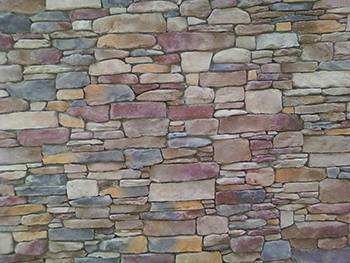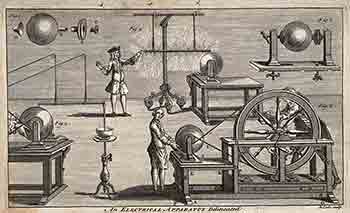FEATURED STORY
Why the Internet of Things isn't the same as the new hardware movement

The new hardware movement is an enabler and driver of the Internet of Things, making it possible to develop IoT systems quickly and at low cost. The O'Reilly Solid Conference covers everything of interest to the executive, entrepreneur, or engineer who needs to understand how the hardware stack is emerging and developing. Read more...

Rob Coneybeer on Nest and the next big thing in hardware
The O’Reilly Hardware Podcast: Virtual reality, robotics, and today’s hardware landscape.
Subscribe to the O’Reilly Hardware Podcast for insight and analysis about the Internet of Things and the worlds of hardware, software, and manufacturing: TuneIn, Stitcher, iTunes, SoundCloud, RSS.
In this new episode of the Hardware Podcast, David Cranor and I talk with Rob Coneybeer, managing director and co-founder of Shasta Ventures, one of the critical first investors in hardware startups including Nest, Fetch Robotics, and Turo (formerly RelayRides).
Discussion points:
- Why Nest looked like an appealing investment back in 2010
- Coneybeer’s focus on virtual reality and robotics as the next big things for hardware startups.
- Why it’s essential for hardware startups to have a long-term plan for improving products after they’re in place, and the importance of over-the-air software updates.
- The consumer psychology of selling a compelling hardware product, and when to aim for high price and high value. “People are willing to spend money when there’s something that’s really revolutionary,” says Coneybeer.
- The current state of venture capital investments in hardware startups. While raising later rounds is becoming more difficult, Coneybeer says: “the most interesting, innovative hardware companies will always find capital.”

Rachel Kalmar on data ecosystems
The O’Reilly Hardware Podcast: Collecting, sharing, and accessing data from sensors.
Subscribe to the O’Reilly Hardware Podcast for insight and analysis about the Internet of Things and the worlds of hardware, software, and manufacturing: TuneIn, Stitcher, iTunes, SoundCloud, RSS.
In this new episode of the Hardware Podcast, David Cranor and I talk with data scientist Rachel Kalmar, formerly with Misfit Wearables and the founder and organizer of the Sensored Meetup in San Francisco. She shares insights from her work at the intersection of data, hardware, and health care.
Discussion points:
- The need for a “data ecosystem” approach: it’s important to understand the entire stack from acquisition through storage and analysis, and where security and privacy become concerns.
- Analysis and insight as the real value in data: consumers get very little from raw data.
- Authentication for smart devices—and an experiment (let us know if your lights went out during this podcast by e-mailing hardware@oreilly.com).

Sanjit Biswas on industrial sensors
The O’Reilly Hardware Podcast: The business of building, marketing, and deploying sensors in tough environments.
Subscribe to the O’Reilly Hardware Podcast for insight and analysis about the Internet of Things and the worlds of hardware, software, and manufacturing: TuneIn, Stitcher, iTunes, SoundCloud, RSS.
In this episode of the Hardware Podcast, David Cranor and I talk with Sanjit Biswas, founder and CEO of the industrial sensor company Samsara.
Discussion points:
- The challenges of making modern systems work with ancient industrial control systems already in the field
- The process of designing temperature sensors for heavy-duty deployments, including environmental constraints, firmware, testing, and necessary certifications
- Price sensitivity in the industrial sensor market; Samsara is one of several interesting startups that make it practical for mid-size businesses that haven’t been previously automated to add sensors

The new hardware movement at CES 2016
The O’Reilly Hardware Podcast: Observations from the Consumer Electronics Show.
Subscribe to the O’Reilly Hardware Podcast for insight and analysis about the Internet of Things and the worlds of hardware, software, and manufacturing.
David Cranor and I have devoted this episode of the Hardware Podcast to a recap of the 2016 Consumer Electronics Show. It’s probably the last recap you’ll hear, since the show happened four weeks ago, but that just means it’s had more time to marinate.
Signs of the new hardware movement were everywhere this year in the innovative new products as well as the cloud of fast-follower devices that surrounded each successful piece of hardware.
Items of note:
- DJI and GoPro have defined the standard design and functionality languages in their fields, and are imitated by nearly every other drone and action cam on display.
- Hoverboards are the first electronics fad that has come straight from Shenzhen. During CES, U.S. marshals raided a Chinese exhibitor’s booth due to a patent infringement claim from the U.S. maker of the Onewheel scooter.
- VR was everywhere, with Samsung’s Gear VR headset particularly ubiquitous
- It’s always interesting to see companies that you wouldn’t necessarily expect at an electronics trade show. We talk about how companies such as MasterCard and United Health were associating themselves with the industry at CES.
- 3D printing has moved into the downward section of Gartner’s hype cycle

Matthew Berggren on making electronics accessible
The O’Reilly Hardware Podcast: Better ways to design electronics.
Subscribe to the O’Reilly Hardware Podcast for insight and analysis about the Internet of Things and the worlds of hardware, software, and manufacturing.
In our new episode of the Hardware Podcast, David Cranor and I talk with Matthew Berggren, who at the time the interview was conducted last December was senior director of product at Supplyframe. (Berggren is now director of Autodesk Circuits at Autodesk.)
Our discussion focuses on the need for abstracted modules and better metadata in electronics. Berggren gets to the root of it here:
There are 30 software developers for every hardware engineer in the world. That’s not only a tremendous bottleneck, but if you accept the premise that the next generation of products are going to be some hybrid of hardware and software—and really, hardware is the means to interact with the real world, and I want to write software applications that will interact with the real world—then there is this massive blue ocean out there that should present tremendous opportunity to semiconductor manufacturers, or anyone else who wants to get into that space.





